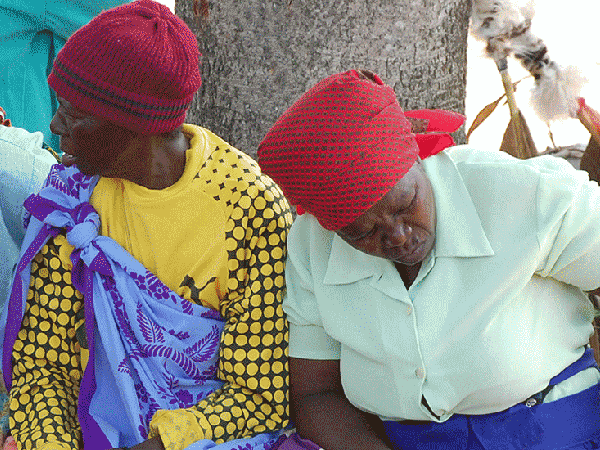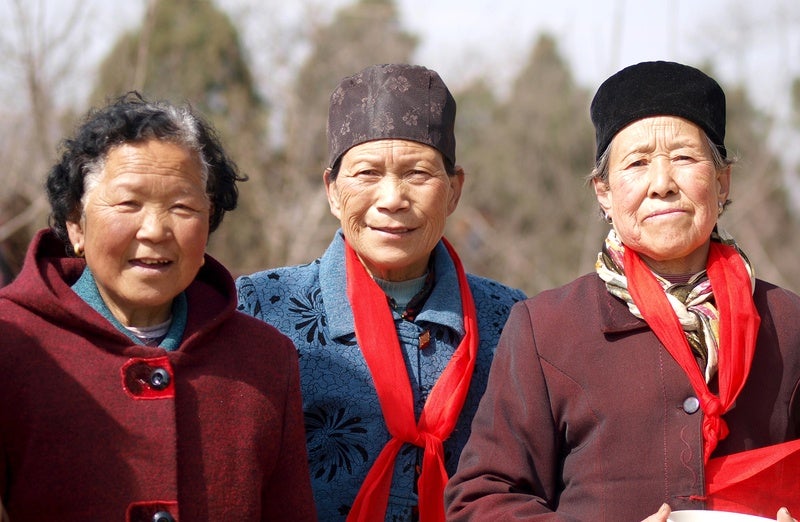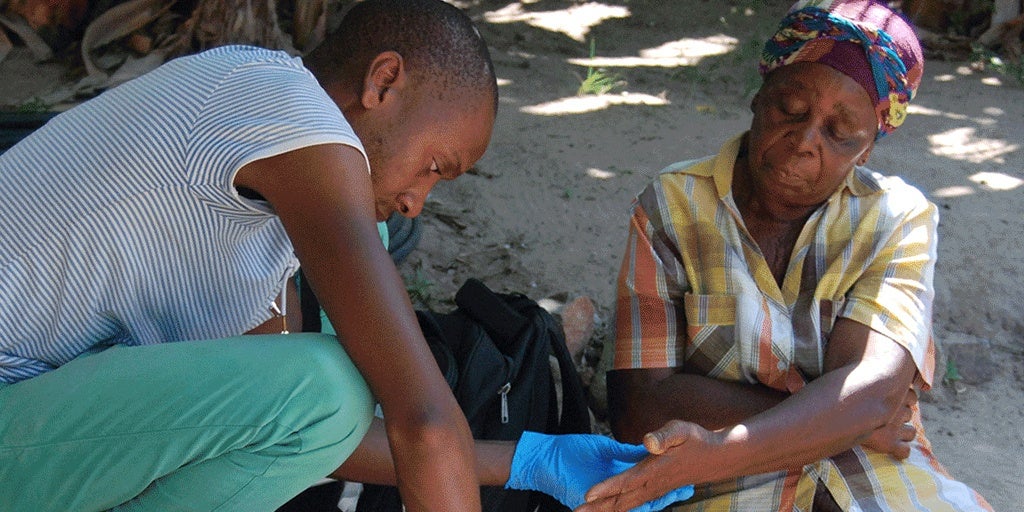A study published in Nature Medicine by HCPDS graduate student affiliate Dorit Stein, and other HCPDS affiliates including Till Bärnighausen, Maja Marcus, Jennifer Manne-Goehler, Nikkil Sudharsanan, and Stephane Verguet (along with their colleagues) simulates that improvements in hypertension management has greater impact “among bottom wealth quintiles in middle-income countries and in countries with larger baseline disparities in hypertension management.”
Does alcohol consumption play a role in the spread of HIV among older adults in South Africa?
A study by HAALSI researchers finds that increased and more frequent alcohol consumption among older adults in South Africa is linked with higher levels of sexual risk taking, patterns of behavior that could contribute to the spread of HIV and other sexually transmitted diseases.
How much does age contribute to the wide variation in COVID-19 case fatality rates across nine countries?
Recent Bell Fellow Nikkil Sudharsanan, PhD, and Harvard Pop Center faculty member Till Bärnighausen, MD, PhD, ScD and their colleagues have published a study in the Annals of Internal Medicine that finds… “Selective testing and identifying of older cases considerably warps estimates of the lethality of COVID-19 within populations and comparisons across countries.” The findings suggest that in order to accurately compare how countries are able to care for patients…
HAALSI study takes closer look at HIV incidence among older adults in South Africa
While there is much data on the levels of prevalence of HIV among older South Africans, less is known about the risks of older people acquiring HIV. Research from the Health and Aging in Africa: A Longitudinal Study of an INDEPTH Community in South Africa (HAALSI) project published in JAIDS finds that there is some risk of acquiring HIV over the age of 50, especially for women.
Community-based screening may help to raise awareness and control hypertension among aging adults in China
Recent Harvard Bell Fellow Nikkil Sudharsanan, along with faculty member Till Bärnighausen and their colleagues, have published a study that shows an association between the intervention and lower systolic blood pressure in an adult population in which nearly half (many, unknowingly) are at risk for hypertension, a major risk factor for cardiovascular disease.
Study finds less than 20% of those 15 years and older in LMICs consume recommended amounts of fruits and vegetables
Several researchers associated with the Harvard Pop Center are among the authors of a new study that examines whether young adults and adults in low- and middle-income countries are consuming the amount of produce recommended by the WHO on a daily basis to help prevent noncommunicable diseases.
HIV treatment programs linked to better cardiometabolic health indicators in South African patients
Researchers in the The Health and Aging in Africa: a longitudinal study of an INDEPTH Community in South Africa (HAALSI) project explored whether those people living with HIV receiving antiretroviral therapy (ART) might have better chronic disease (e.g. hypertension, diabetes) control and numbers resulting from the “cascade” of care. The results are published in JIAS.
Does cardiovascular disease risk vary among different groups in India?
Cardiovascular disease (CVD) is the leading cause of mortality in India. A study in PLOS Medicine (with Harvard Pop Center fellow Jennifer Manne-Goehler, MD, ScD, and faculty member Till Bärnighausen, MD, PhD, ScD, among the authors) identified significant geographic and sociodemographic variation in CVD risk, findings which could help to shape effective targeting of CVD programs.
Immediate eligibility of ART lowers household-level incidence of HIV by over 40%
A study finds that early eligibility of antiretroviral therapy substantially lowered HIV incidence among HIV-uninfected household members in rural South Africa. The team of researchers who published the findings includes Harvard Pop Center faculty members Drs. Kenneth Mayer and Till Bärnighausen, as well as visiting scientist Guy Harling.
In South Africa, when HIV testing is not always possible, is self-reported status a viable, reliable alternative?
A team of researchers affiliated with the Harvard Pop Center and the Health and Aging in Africa: A Longitudinal Study of an INDEPTH Community in South Africa (HAALSI) has found that the self-reported HIV status of older adults was accurate enough that it could be considered as a routine first step to establish HIV status when testing is not possible. The study was published in JIAS (Journal of the International Aids…





